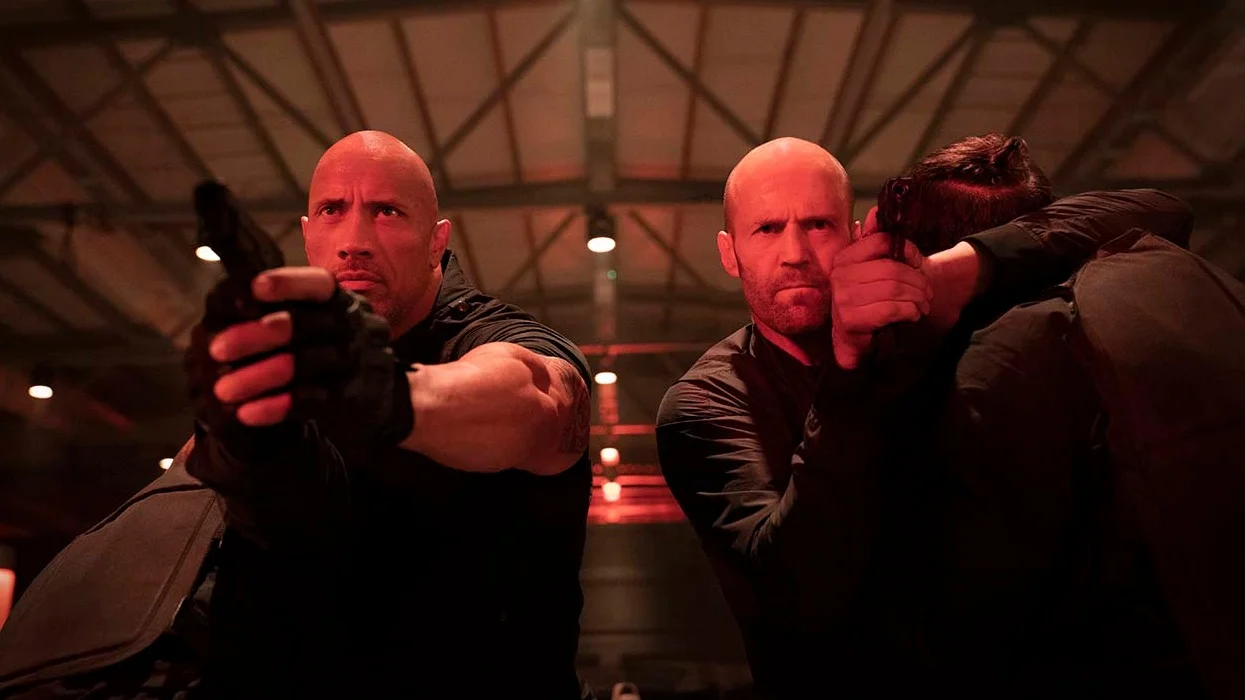Fantasia 2019: Harpoon
Harpoon is a film with only three onscreen characters, which is a bold choice. It is also a film set in a singular location for the majority of the narrative, which is another risk; will we connect with the characters enough to spend the entire runtime with just them, in one place? Does the setting provide ample opportunities for action, without the audience feeling agitated or bored? The thriller genre lends itself to these set-ups best: Panic Room, Buried, Phone Booth, Misery… to name a few. As it happens, I’m not really sure what genre would best define Harpoon. It’s unclear how satirically self-aware the on-the-nose dialogue and overblown plot points are intended to be, but however much of the film refuses to take itself seriously, I can’t help feeling that it, pardon the pun, missed the boat.
Within the first five minutes, a wealthy and attractive man called Richard (Christopher Gray) has beaten up his best friend, Jonah (Munro Chambers), because he suspects him of sleeping with his long-term girlfriend. As she returns to break up the fight and explain the situation, Sasha (Emily Tyra) is introduced as the mother figure of the trio, despite her boyfriend degrading her opinions and her education - she recently completed a nursing degree - throughout the film. Within another few minutes, the trio arrives at the destination where they will spend the remainder of their screen time, on Richard’s father’s boat, ‘The Naughty Buoy’, and their respective descents into more and more chaotic and over-the-top behaviour begins.
The plot is relatively sparse: there are only about four major plot points that take place once the three are aboard the boat. Without a fleshed-out narrative, a variety of locations or a lively ensemble cast, a film like this must rely on engaging performances to keep its audience captivated. This is something that The Shallows - with a similar stuck-at-sea plot and focused on only one character throughout almost the entire film - manages to achieve. Here, Chambers, Gray and Tyra do the best with the lines they’re given, but with a script so lazy, they’re inevitably relegated to unconvincing portrayals. A scene in which the trio pass around a bottle of Scotch and discuss each other’s sexual performances lasts so long, and is so crassly written, that it feels like the work of a teenage film student with the heady excitement of discovering that they can write about sex in a script.
Chambers, playing the ‘sensitive one’ to Gray’s angry, incompetent rich boy, gives the most (possibly the only) compelling performance, partly due to the fact that his character is by far the most interesting, especially after a late plot twist that allows for some truly terrifying moments between Jonah and Sasha. Plus, despite its failures elsewhere, the script is successful in dropping a few sly hints to Jonah’s mental state throughout the film (although a narrative strain regarding a murdered pregnant woman is not handled so deftly). But this doesn’t change the fact that I found it impossible to imagine any person in real life being as vapid and insufferable as these characters. Even with Brett Gelman’s sardonic voiceover providing an insight into the trio’s lives, you still don’t know enough about these people to understand, or care about, their plights - although I’m not convinced that this would change even with ample backstories.
In film, of course, well-developed characters or a complex narrative are often abandoned in favour of exaggerated gore, and Harpoon doesn’t spare any details in its depiction of violence. An infected wound leads to a botched amputation, and the characters inflict multiple, graphic injuries upon each other, though this mostly takes place between the men. To the film’s credit, the gore is handled pretty well - it’s gratuitous, but this is deliberate. Indeed, Harpoon has an air of self-reflexivity that attempts to account for the lack of plot and the stupidity of both the dialogue, and the situations that the characters find themselves in. Unfortunately, it’s not enough to justify the frustrations that arise from watching the action unfold.














